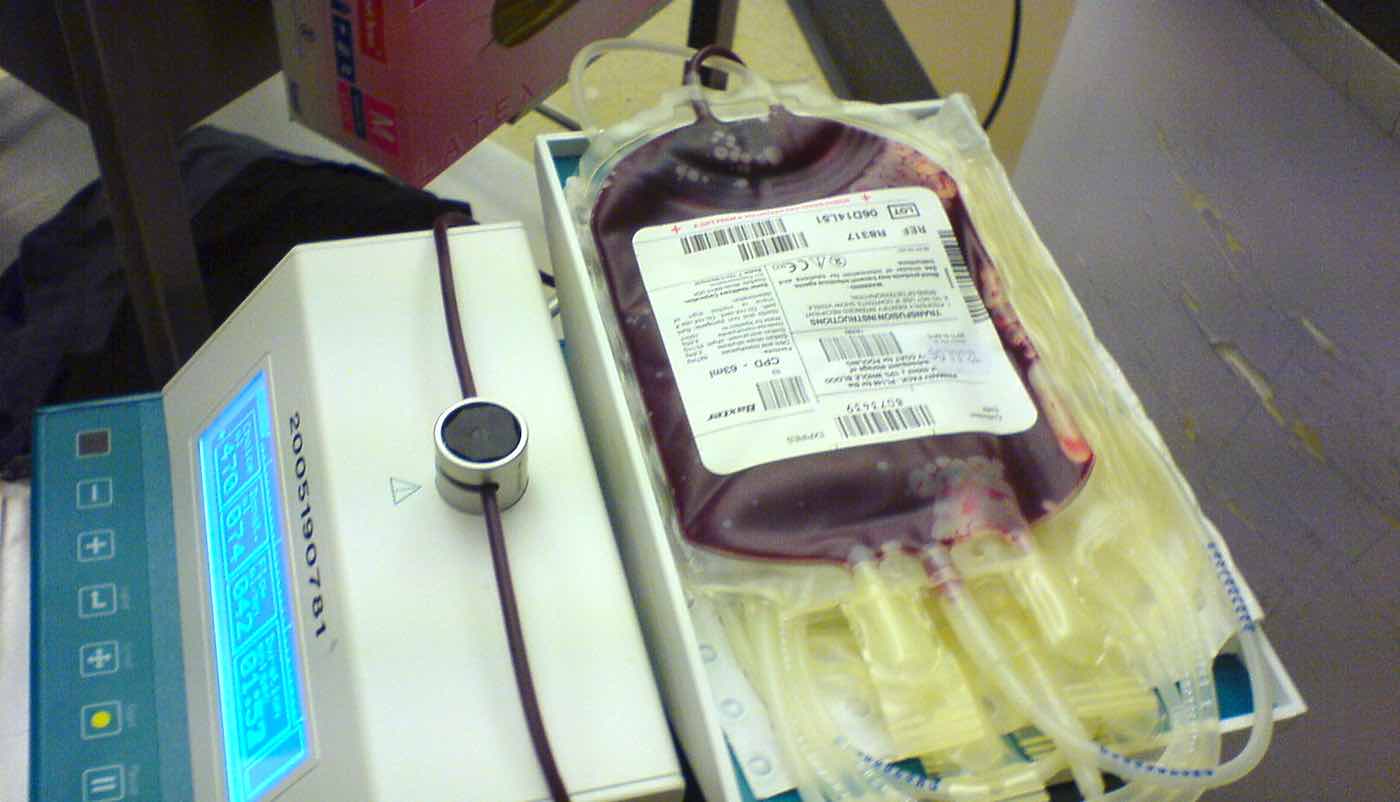Worrying about matching blood types may soon be a thing of the past now that scientists have developed a revolutionary technique for making a “universal” blood type.
Three-quarters of the world’s population have one of four different kinds of blood types: A, B, AB, or O. The first three blood types each carry different strains of antigens and antibodies on the surface of their blood cells which provoke different immune responses. Since certain type A blood cells provoke immune responses against type B blood cells, we have thus far been unable to mix incompatible blood types for operations and treatments without the patient suffering a dangerous autoimmune reaction.
The O blood type, on the other hand, is considered the “universal” blood type because it only contains neutral antigens that can safely interact with the antigens of other blood types.
Now in a groundbreaking new study from the University of British Columbia, researchers say they have managed to identify a bacterial enzyme that can neutralize antigens and render their immune responses harmless.
MORE: Be Sure and Floss! Researchers Say Good Dental Health ‘Substantially’ Decreases Risk of Alzheimer’s
Interestingly, the researchers discovered the bacteria inside of our own gut microbiome. Upon mixing the bacteria with a type A blood sample, the bacteria stripped the cells of their aggressive antigens and turned it into a universal type O blood sample.
“Blood transfusion is an indispensable part of the health care system, saving many thousands of lives annually,” writes Peter Rahfeld, a postdoctoral research at the university. “The blood used must be carefully matched since transfusion with mismatched blood types can lead to fatal consequences.
“However, this can be problematic in emergency situations, where there is no time for blood matching: in that case the use of universal donor blood (Type O) is essential, but supply of O Type blood is often short.
“By screening a library of gut microbiome enzymes using fluorogenic substrates that mimic the blood antigen carbohydrates, we identified a set of enzymes expressed by a particular bacterium, Flavonifractor plautii, that are able to cleave the A antigen very efficiently.
“Their ability to completely convert A to O of the same rhesus type at very low enzyme concentrations in whole blood will simplify their incorporation into blood transfusion practice, broadening blood supply.”
The researchers now hope that they will quickly be able to develop the procedure so that physicians can soon have virtually unlimited access to type O blood around the world.
RELATED: Another Study Shows How Flickering Lights Can Slow (And Maybe Even Reverse) Alzheimer’s Symptoms
“In the future we hope these enzymes will be widely deployed for the production of enzymatically converted universal donor blood (ECO O Type RBCs) directly after blood donation,” he added. “In addition to their use in RBC conversion we plan to test the use of these and related enzymes in the removal of antigens from other important cell surfaces and tissues. Such approaches could widen the availability of good ‘matches’ in organ and stem cell transplantations.”
The researchers published their findings in Nature Microbiology earlier this week.
Be Sure And Pass On The Positive News To Your Friends On Social Media…




















